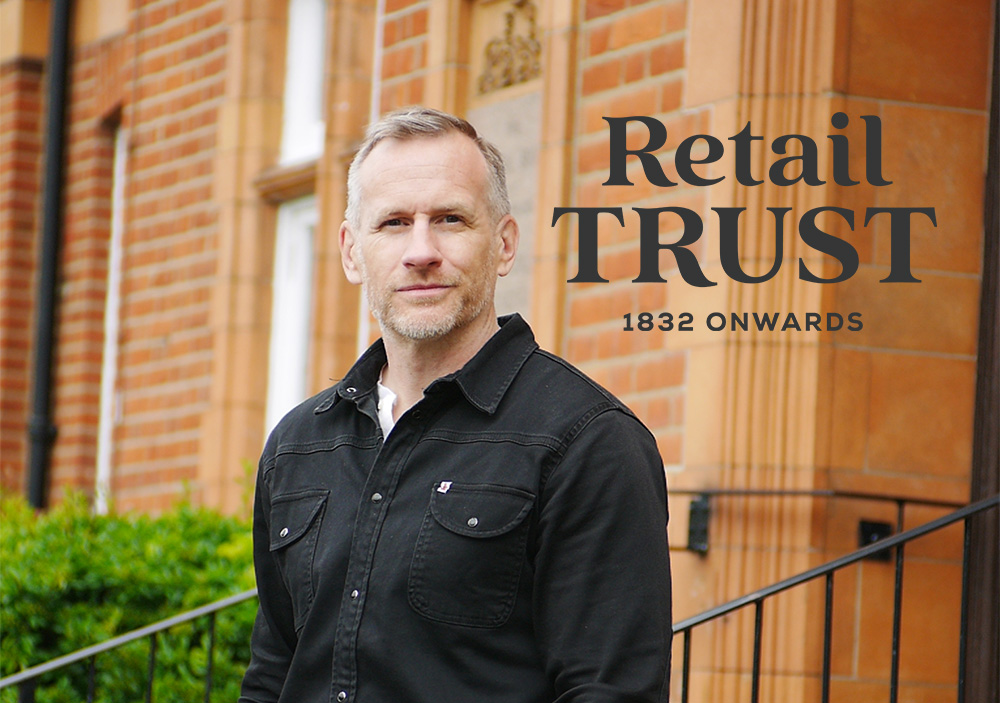The 2026 World’s Happiest Workplaces Winners have been announced! Is your organisation a winner?
View the full winners list here!
Chris Brook-Carter, chief executive of Retail Trust
July’s King’s Speech unveiled our new government’s commitment to strengthening the country’s mental health provision.
The Retail Trust works with more than 200 retailers to improve the wellbeing of the industry’s workforce, so we’ve long called for mental health to be given the same attention and focus as physical health. And this is something King Charles said will become a priority when it comes to improving the NHS, increasing support for young people and reforming the Mental Health Act.
We’re extremely supportive of these new measures, not least because they should also help to encourage employers to better support the wellbeing of their people, which will in turn help to reduce the burden on NHS services.
Declining wellbeing
The retail industry is the UK’s largest employer outside of the public sector but 80% of staff told us they experienced declining wellbeing last year while more than half of managers reported an increase in absences due to mental health issues.
Young people are often most heavily impacted, as evidenced by the Retail Trust and AlixPartner’s new Retail People Index which uses data from WorkL and the Retail Trust’s wellbeing services to show the impact of poor mental health on presenteeism and retention across the retail industry.
We’ve launched this new quarterly index because we know how difficult it can be to measure the impact of workplace wellbeing initiatives on a business’s bottom line.
During the pandemic and its successive lockdowns, we saw some employers place a new focus on their staff’s mental health, sometimes for the first time. But with costs everywhere soaring, wellbeing budgets have been increasingly under strain ever since.
The link between workplace wellbeing and business success
WorkL’s data and expertise has also played an important role in the development of the Retail Trust’s happiness dashboard, another new initiative that aims to make the link between workplace wellbeing and business success easier for employers to prove.
We knew the substantial data from our services and from WorkL’s wellbeing surveys was key to this, and developed a platform that uses advanced AI and machine learning to analyse this data quickly and accurately, providing retailers like FatFace, Next and Ann Summers with live and actionable insights.
The platform shows how people are using the Retail Trust’s support, provides an overall picture of staff mental health and generates actionable insights to help employers address specific issues.
It also reveals how much employers’ initiatives to improve mental health are saving the business, by calculating the financial value of reduced absenteeism or presenteeism and increased staff retention, and the economy, by reducing the numbers of sick play claims or reliance on NHS services for example.
Encouraging people back into the workforce
And so, with the King’s Speech also highlighting the government’s focus on encouraging those with mental health or physical conditions back into the workforce, our concern is that any new measures will only work if they are accompanied by greater commitments from employers to really invest in and develop tailored wellbeing support for their people.
Now, more than ever, employers must recognise and understand both their responsibility for fostering a healthy and happier workforce but also the impact this will have on their business’s productivity and success.
Thank you to the Retail Trust’s partner WorkL for their ongoing support and expertise in helping us deliver hope, health and happiness to everyone in retail.

